How Swiss direct democracy deals with xenophobia
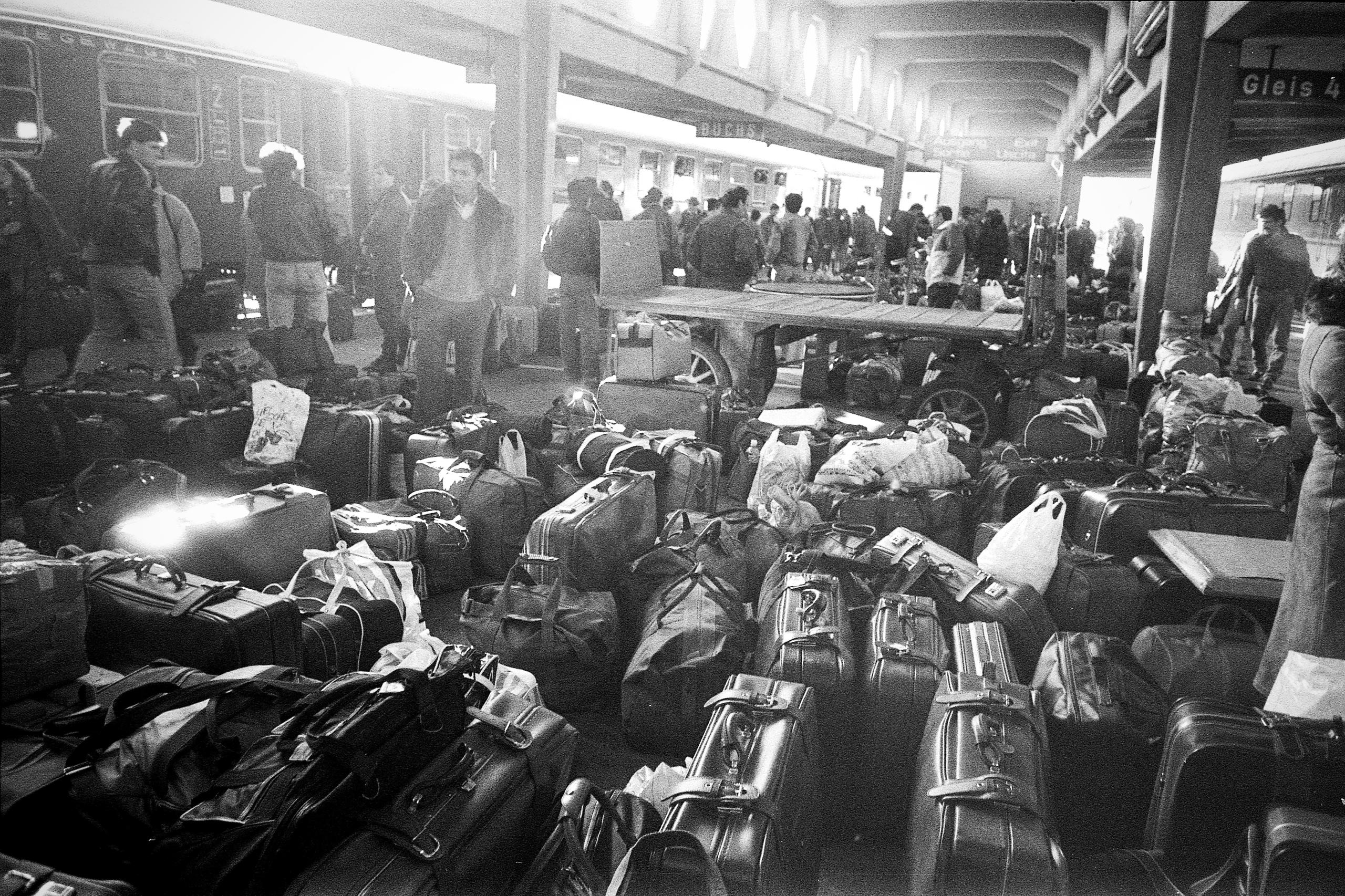
“Italians go back to Italy” was the slogan used in the “initiative against an excessive number of foreigners” 50 years ago. It was the first in a series of 42 popular votes on foreigners in Switzerland. Why does the fear of non-Swiss keep coming back?
History was made in Switzerland on June 7, 1970 when voters decided on the fate of Italian guest workers in their country. Although the initiativeExternal link was rejected, the fact that 46% of voters backed limiting foreigners to 10% of the population in each canton (25% in Geneva) revealed both the widespread xenophobia and the deep rift in society at the time.
Turnout for the initiative was 75%, the highest to date. It was also dubbed the Schwarzenbach Initiative after its initiator James Schwarzenbach, the son of an industrialist family, admirer of Mussolini and sympathiser of the National Front, the Swiss equivalent of the Nazi movement.
Between the end of the Second World War and 2002, hundreds of thousands of Italians arrived in Switzerland as seasonal workers who were sometimes forced to live in inhuman conditions.
After the traumas of the Second World War, the fear of foreigners dominated Switzerland’s political agenda for the first time. After the war the first wave of foreigners arrived in Switzerland – first the Italians, then the Spanish, Turkish and Yugoslavs – all men. Women and children stayed behind. These foreign workers built modern Switzerland: motorways, airports, power stations and schools.
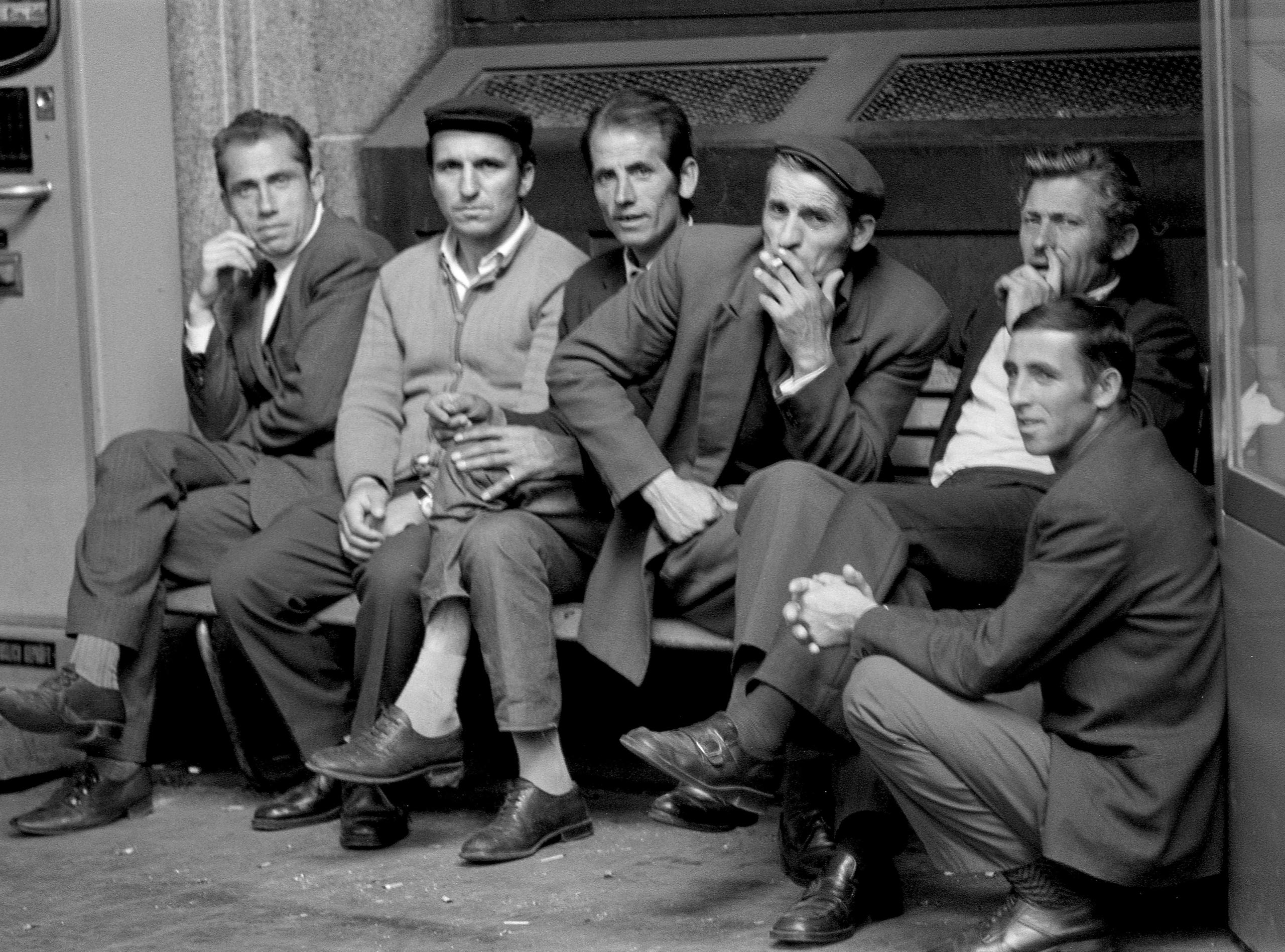
More
The Italian seasonal workers in Switzerland
“As soon as the first foreign workers arrived in post-war Switzerland, people became anxious that they would take away their jobs, their places in society and their women,” says Marc Bühlmann, professor of political science at the University of Bern.
“In Switzerland, direct democracy ensures that these fears are brought to the surface and are organised. The initiative against an excessive number of foreigners had to be discussed in political circles and in society. This is the really cool thing about direct democracy: fears are put on the table, whether or not they are shared.”

More
When ‘old’ immigrants help ‘new’ ones
Role of Swiss People’s Party
The right-wing Swiss People’s Party took on the task of raising such fears at the beginning of the 1990s. The party not only furthered Schwarzenbach’s narrative, it actually turned it into a mainstream political issue.
It all started with a bang in 1992 when the Swiss surprisingly voted against joining the European Economic Area (EEA). “The Swiss People’s Party is a pioneer and leader [in launching such initiatives] in Switzerland. And at the same time it has responsibilities as part of the government,” Bühlmann says.
The People’s Party continued to win other important popular votes around this issue: the internment of dangerous delinquents in 2004, the minaret ban in 2009, the move to expel foreign criminals in 2010 and the initiative against mass immigration in 2014.
“The fears are definitely there and it is the parties’ job to bring them to the fore and deal with them,” Bühlmann says. He believes that this not only objectifies the problems but also makes people with such fears feel they are taken seriously if a party looks after them and says ‘I’m giving you a voice’.”
This ultimately builds people’s trust in the political system and makes them feel more content with their representatives in parliament and the government.
Political taboos
If fears are not discussed in political circles, they will turn into political taboos. “This would give extreme right-wing parties the opportunity to step into the breach and turn fears into anger. This is exactly what happens with the AfD in Germany and the Rassemblement National in France.”
In Switzerland, the 42 votes that have been held on the issue reflect people’s ongoing debate about “them” and “us”, about identity and difference.
However, bringing the fear of foreigners into the political discussion and how to deal with them has its price.
“Migration policy has been tightened because of it,” Bühlmann says. The People’s Party managed to turn its success in referendums and initiatives – that is, direct democracy – to success in parliamentary elections: the People’s Party has been the strongest force in parliament since 1999.
Racism – problem awareness
So just how xenophobic is the Swiss in the street really? One third of the population is latently xenophobic, says Hans-Ulrich Jost, a former history professor at the University of Lausanne.
Martina Mousson, political scientist at the gfs.bern Research Institute, thinks his theory is too general. “Even though the 2010-2014 pilot study ‘Living together in Switzerland’ showed that 40% of the Swiss tend to be critical of Islam, significantly fewer – namely less than 20% – were explicitly Islamophobic.”
A follow-up study conducted in 2018 found that 59% considered racism a serious problem in Switzerland. “People are obviously aware of the problem,” she says.
Mousson believes that globalisation is part of the reason why xenophobia remains an issue in Switzerland.
“It fuels xenophobia and exclusion,” she says. “Globalisation makes the Swiss feel small and at other people’s mercy, which leads them to believe they need secure borders.” This has also become an issue in the times of Covid-19. “Within the European Union, this is a pretty big deal.”
● Excessive number of foreigners/immigration control: the most significant example is the Schwarzenbach initiative held on June 7, 1970; 54% voted against.
● Policy on foreigners: the latest example is the ‘deportation initiative’ held on November 20, 2010; 52.3% voted in favour.
● Asylum law: the latest example is the ‘initiative on asylum law restrictions’ held on September 24, 2006; 67.8% voted in favour.
● Naturalisation: vote on facilitated naturalisation process for young second-generation immigrants held on September 26, 2004; 56.8% voted against.
● Switzerland and the world: (Europe/EU, UN, international treaties): the most significant example was probably the vote on joining the European Economic Area (EEA) held on December 6, 1992; 50.3% voted against.
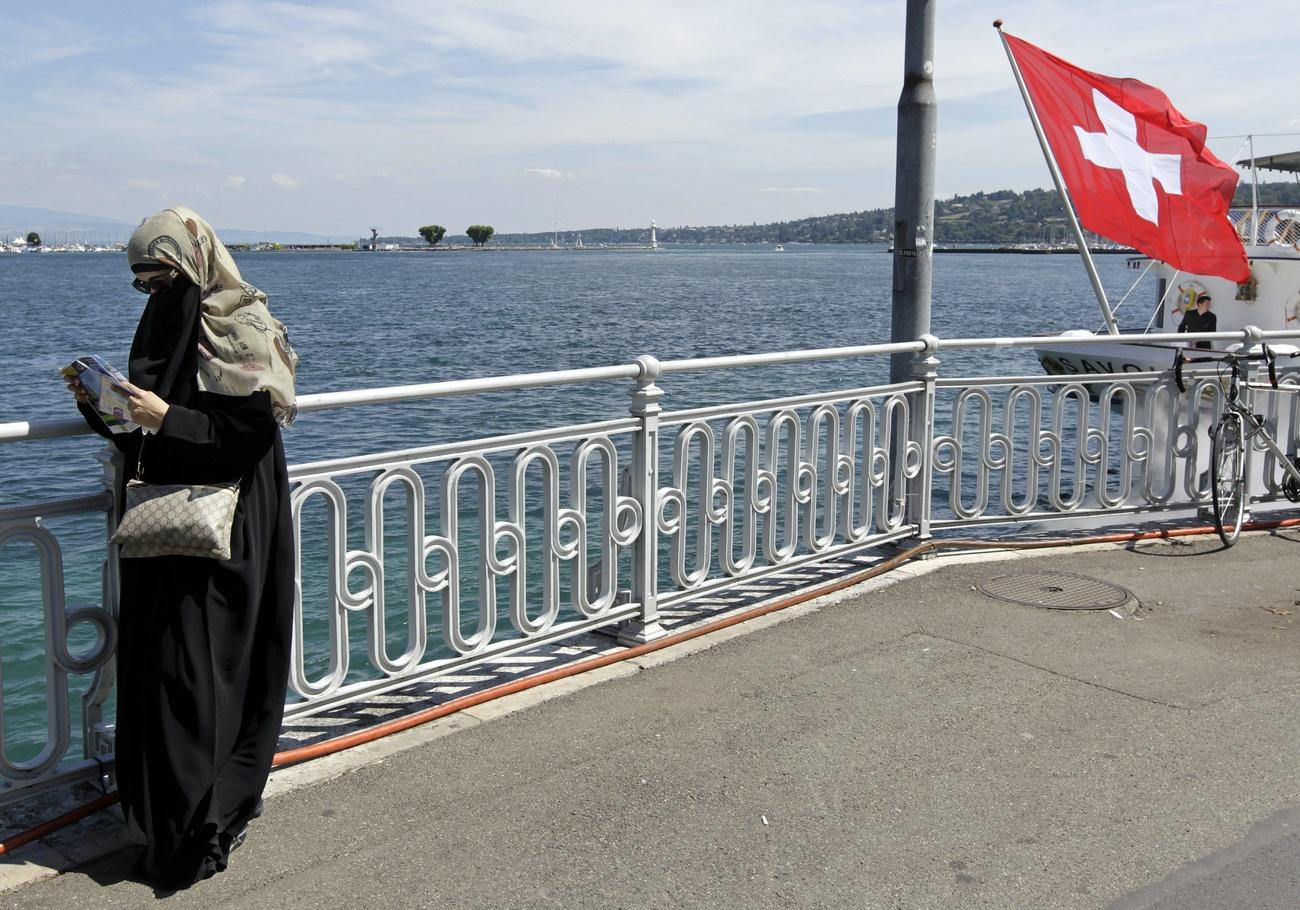
More
2019 data shows racism on the rise in Switzerland
(Translated from German by Billi Bierling)

In compliance with the JTI standards
More: SWI swissinfo.ch certified by the Journalism Trust Initiative















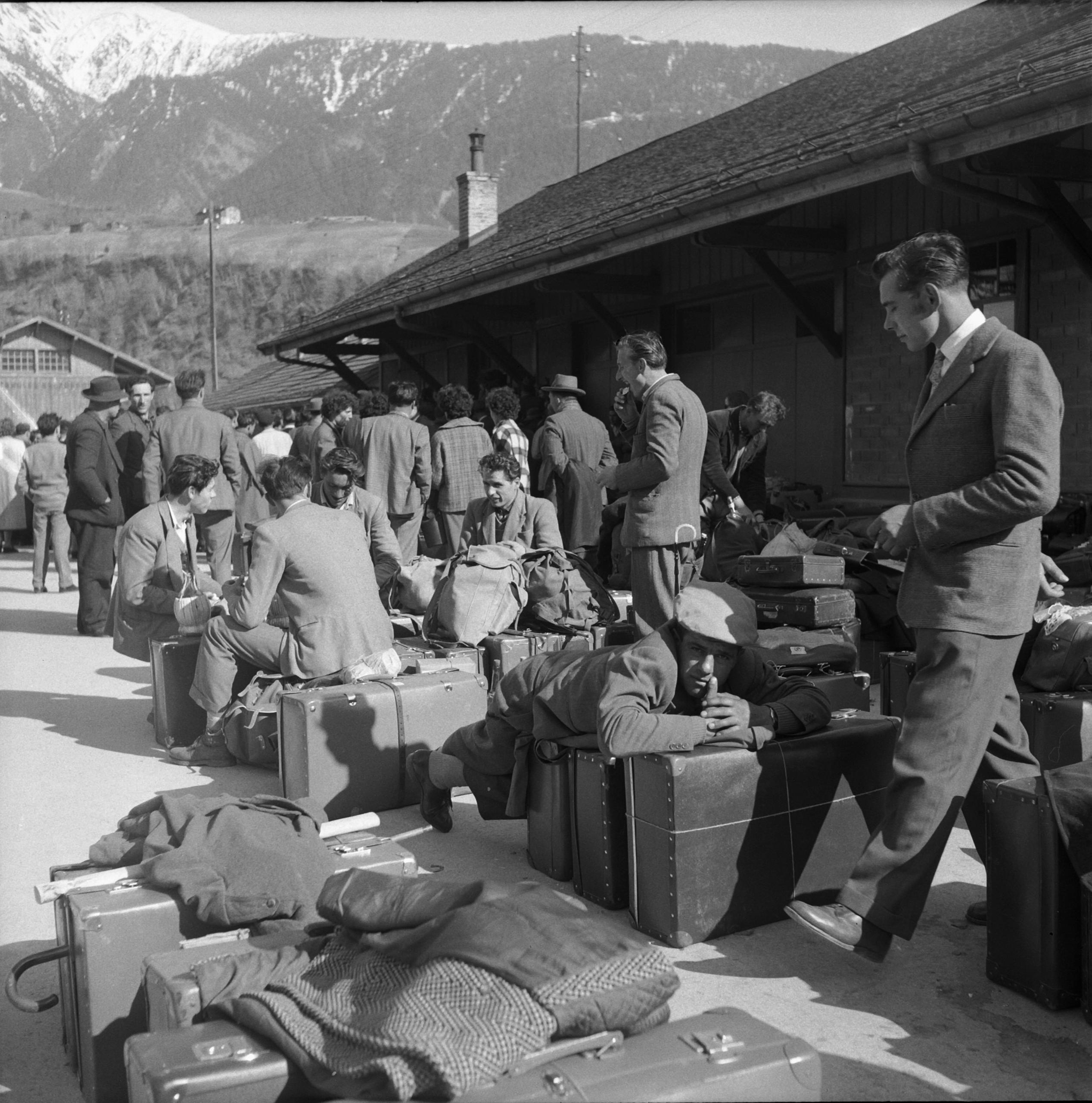
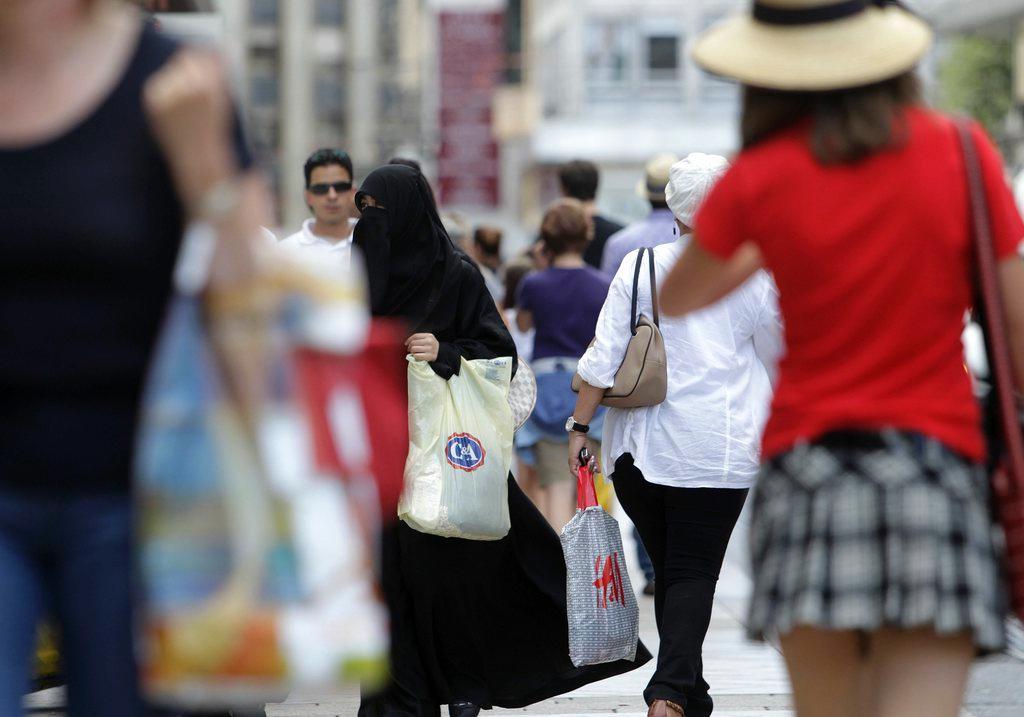
You can find an overview of ongoing debates with our journalists here . Please join us!
If you want to start a conversation about a topic raised in this article or want to report factual errors, email us at english@swissinfo.ch.